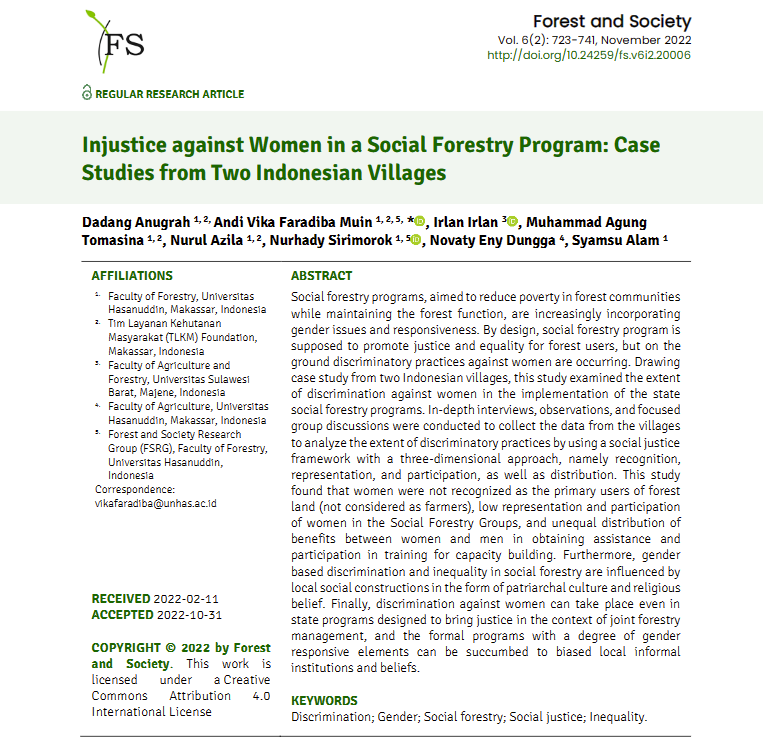Resource information
Social forestry programs, aimed to reduce poverty in forest communities while maintaining the forest function, are increasingly incorporating gender issues and responsiveness. By design, social forestry program is supposed to promote justice and equality for forest users, but on the ground discriminatory practices against women are occurring. Drawing case study from two Indonesian villages, this study examined the extent of discrimination against women in the implementation of the state social forestry programs. In-depth interviews, observations, and focused group discussions were conducted to collect the data from the villages to analyze the extent of discriminatory practices by using a social justice framework with a three-dimensional approach, namely recognition, representation, and participation, as well as distribution. This study found that women were not recognized as the primary users of forest land (not considered as farmers), low representation and participation of women in the Social Forestry Groups, and unequal distribution of benefits between women and men in obtaining assistance and participation in training for capacity building. Furthermore, gender based discrimination and inequality in social forestry are influenced by local social constructions in the form of patriarchal culture and religious belief. Finally, discrimination against women can take place even in state programs designed to bring justice in the context of joint forestry management, and the formal programs with a degree of gender responsive elements can be succumbed to biased local informal institutions and beliefs.

